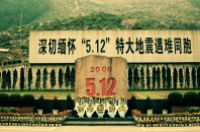
在BBC任职已30年的BBC中国区编辑郭艾莉(Carrie Gracie)近日发表辞职公开信,控诉BBC存在严重违反“男女同酬”的问题。简报编辑部特翻全文以飱读者。
亲爱的 BBC 读者们,
我的名字叫 Carrie Gracie ,在BBC做记者有三十余年。十分遗憾的是,目前我已从BBC中国区编辑岗位离职,我这么做是为了公开大胆地讲出这场发生在BBC的信任危机。
BBC是属于各位的,它属于每一位用户。我相信你们有权知道发生了什么,它已经打破了平等法,并且拒绝着一个公平透明的薪酬结构。
在BBC的三十余年里,我从没想过自己有一天成了故事的主人公,也从未公开声讨过这个我深爱的机构。我并不想拿到更多钱。作为公共资金资助的组织下的一名员工,我的确已经拿到了优厚的报酬。我只是希望BBC能遵守法律,平等地对待男女员工。
报酬方面,BBC没能遵守它所宣称的信任、诚实和问责。六个月前,BBC被要求披露的工资让我们看到了这样一种状况:得到高薪的是主持团队和管理人员,而在从事相同工作时,男女职员存在着无可置否的收入差距。这一事实让BBC员工们备受打击,特别是女员工们,她们头一次见到被非平等对待的有力证据,正如她们长久以来怀疑的那样。
有些人寄希望于通过内部沟通解决薪水问题,但管理层否认问题的存在。这种背水一战的心态更可能以法律灾难性的失败收尾,我们将看到各个岗位上女性人才的大批流失。
遭遇了不公,每个人都得做出自己的选择,我的选择只是其中一种。我这么做是希望能帮你理解,我为什么觉得我有责任讲出来。
我是个中国通,说一口流利的普通话并有着三十多年的报道经验。四年前,BBC督促我上任一个新创建的岗位——中国区编辑。
我清楚这份工作需要的牺牲和适应力,我不得不在距孩子们5000英里的地方工作。我接受了挑战,并借此向我的老板提出与男同事同工同酬的要求,和BBC的很多女同事们一样,长久以来我怀疑自己的工资时不时地被付少了。在我工作生涯的这一刻,我决定让这一切不再发生。在我确信我可以拿着和同样职位男员工相同的酬劳后,我动身前往北京。
过去的四年里,BBC在中国有四个国际编辑,两男两女。2010年的平等法案规定了无论男女在做相同的工作时应被同等支付薪水,但去年七月我了解到,在上一个财政年度,两个男员工的收入超过两个女员工收入的50%。
尽管BBC认为把我指派到中国和他们在性别平等上的承诺相符,尽管我个人在赴任前就声明同等报酬是我的条件和坚持,我的主管们却依然再次判定女性的工作不及男性的工作有价值。
当我听说BBC因这次被迫薪酬信息披露而抱怨时,我的困惑转为沮丧,如果不是薪酬披露,我和其他女性同事们永远都不会知晓这些真相。
我对我的上司讲,让所有国际编辑领取同等薪酬是我们唯一接受的解决方案,而薪酬的数额由BBC来定。我的诉求足够清楚,这样做并不是为了加薪,只是想要领取同等的报酬。然而BBC却给我大幅涨薪,但这离平等还有很远。他们说薪水的差异是因为职责各有“不同”,但他们却拒绝解释这些“不同”。我拒绝了这不公平的涨薪,以此我一边忍受着这些不公,一边继续着我艰难的上诉。
适可而止吧,我想。中国的崛起是我们时代最声势浩大也难以勾勒的故事,我没办法一边兼顾工作一边继续我繁复的上诉。上周我决定从中国区编辑一职离职,现在回到了我之前的岗位:电视新闻编辑室,在这里我也理应收到平等的薪酬。
对于BBC的女员工来说,这不是一两年薪水多少这么简单的问题,如果算上不利的合同和应领的养蓄金,这份不公平将是持续一生的无底深渊。 受影响的女性并非高收入的“明星们”,她们是领着微薄工资的辛勤工作者,很多时候她们中的少数族裔甚至比其他人遭受更高的收入差距。
这不是BBC能给出合理解释的性别收入差距,男员工绝非因为做了更多工作而获得更高的薪水,而是在同样工作或是同等工作价的前提下,他们的收入还是更多。这是赤裸裸的薪酬歧视,这一切都是非法的。
去年七月,在意识到这令人震惊的不平等后,BBC的女员工们决定一起出来直面这滋生了不平等的“薪酬保密文化”,我们分享我们的工资明细,也要求男员工们一同分享。
目前BBC正展开多重审查,“乐观”的新闻主管这样解释“我们有着完全平等的工资审计,这意味着BBC是有平等支付报酬的”。但事实上这并非一个完整的审计,审计中未能包含薪酬差距最大的那群女性。BBC现在又搞起了“能力评估”,但在薪酬差距上遭受不公的女性对此没有信心。多达两百位女性在薪酬方面表达了对不公的不满,但她们反复收到的回复却只是,BBC不存在收入歧视。是我们搞错了什么吗?我对我们的管理层给出一个诚恳的答复不抱希望了。
事实上,唯一不用担心自己遭受了不平等薪酬的BBC女员工是那些高管人员,因为他们的薪资是公开的。比如我们新闻主管,她无需通过抗争来争取和男性一样的薪酬,因为对于他还是她,34万英镑的薪酬都是公开的。而其他人呢?“薪酬保密文化”让BBC的女员工们依然处于同工不同酬的黑暗阴影里。
这件事应该如何正确处理?
首先,BBC必须承认薪酬不平等的问题,道歉并重新设定一个平等而透明的薪酬结构。为了避免将来把钱浪费在不可能胜诉的案件上, BBC最好立即同意用独立仲裁的方式来解决个别案件。
耐心和善意终将耗费殆尽。自去年7月事发后的半年时间里,BBC试图通过利用所谓“分而治之”的拙劣方案来解决问题。它为一些女性提供了“修订版”的薪酬方案,但这并不能保证男女平等,而另一些女性则依旧奔走于漫长的诉讼过程。
我们觉得进退维谷。如果把这件事说出来,有可能面临纪律处分甚至被开除;如果诉诸于法律极可能自毁前程,给自己的财务上带来毁灭性的代价。更重要的是,BBC经常会采取庭外和解方式解决问题,要求对方对事件保密。这真不该是一个自诩为追求真理的组织的所作所为,而且这种方式也无益于解决机构系统上的问题。
我们的控诉并不针对任何个别管理人员。事实上,我感谢他们一直以来在工作中对我的支持和他们对新闻理想的追求。但是,长期以来,一个非法的BBC“薪酬保密文化”让这些员工们做出了错误的选择。
这一切必须改变。
与此同时,我们必须意识到到BBC绝不是唯一一个隐性薪酬歧视的工作场所,而要求薪酬更透明的压力也在不断增加。我希望BBC的竞争对手不会把这封信当作一块石头,以此来落井下石,而是反思他们自己机构的平等问题。
选择突然离职,和我们北京分部的同事说再见是一件痛苦的事。这些同事们大多数都是才华横溢的年轻女性。我不想因为我们这一代人现在没能打赢这场战役而让她们将来继续为此而战。
对于任何在工作场所遭遇薪酬性别歧视的女性,我希望姐妹们能团结一致,并获得公司里男同胞的支持。
自女性首次获得在英国的选举权至今已经过去了一个世纪,让我们在这场男女同工同酬的战役中获得胜利来致敬百年前勇敢的一代。
Carrie Gracie
Dear BBC Audience,
My name is Carrie Gracie and I have been a BBC journalist for three decades. With great regret, I have left my post as China Editor to speak out publicly on a crisis of trust at the BBC.
The BBC belongs to you, the licence fee payer. I believe you have a right to know that it is breaking equality law and resisting pressure for a fair and transparent pay structure.
In thirty years at the BBC, I have never sought to make myself the story and never publicly criticised the organisation I love. I am not asking for more money. I believe I am very well paid already – especially as someone working for a publicly funded organisation. I simply want the BBC to abide by the law and value men and women equally.
On pay, the BBC is not living up to its stated values of trust, honesty and accountability. Salary disclosures the BBC was forced to make six months ago revealed not only unacceptably high pay for top presenters and managers but also an indefensible pay gap between men and women doing equal work. These revelations damaged the trust of BBC staff. For the first time, women saw hard evidence of what they’d long suspected, that they are not being valued equally.
Many have since sought pay equality through internal negotiation but managers still deny there is a problem. This bunker mentality is likely to end in a disastrous legal defeat for the BBC and an exodus of female talent at every level.
Mine is just one story of inequality among many, but I hope it will help you understand why I feel obliged to speak out.
I am a China specialist, fluent in Mandarin and with nearly three decades of reporting the story. Four years ago, the BBC urged me to take the newly created post of China Editor.
I knew the job would demand sacrifices and resilience. I would have to work 5000 miles from my teenage children, and in a heavily censored one-party state I would face surveillance, police harassment and official intimidation.
I accepted the challenges while stressing to my bosses that I must be paid equally with my male peers. Like many other BBC women, I had long suspected that I was routinely paid less, and at this point in my career, I was determined not to let it happen again. Believing that I had secured pay parity with men in equivalent roles, I set off for Beijing.
In the past four years, the BBC has had four international editors - two men and two women. The Equality Act 2010 states that men and women doing equal work must receive equal pay. But last July I learned that in the previous financial year, the two men earned at least 50% more than the two women.
Despite the BBC’s public insistence that my appointment demonstrated its commitment to gender equality, and despite my own insistence that equality was a condition of taking up the post, my managers had yet again judged that women"s work was worth much less than men"s.
My bewilderment turned to dismay when I heard the BBC complain of being forced to make these pay disclosures. Without them, I and many other BBC women would never have learned the truth.
I told my bosses the only acceptable resolution would be for all the international editors to be paid the same amount. The right amount would be for them to decide, and I made clear I wasn"t seeking a pay rise, just equal pay. Instead the BBC offered me a big pay rise which remained far short of equality. It said there were differences between roles which justified the pay gap, but it has refused to explain these differences. Since turning down an unequal pay rise, I have been subjected to a dismayingly incompetent and undermining grievance process which still has no outcome.
Enough is enough. The rise of China is one of the biggest stories of our time and one of the hardest to tell. I cannot do it justice while battling my bosses and a byzantine complaints process. Last week I left my role as China Editor and will now return to my former post in the TV newsroom where I expect to be paid equally.
For BBC women this is not just a matter of one year’s salary or two. Taking into account disadvantageous contracts and pension entitlements, it is a gulf that will last a lifetime. Many of the women affected are not highly paid ‘stars’ but hard-working producers on modest salaries. Often women from ethnic minorities suffer wider pay gaps than the rest.
This is not the gender pay gap that the BBC admits to. It is not men earning more because they do more of the jobs which pay better. It is men earning more in the same jobs or jobs of equal value. It is pay discrimination and it is illegal.
On learning the shocking scale of inequality last July, BBC women began to come together to tackle the culture of secrecy that helps perpetuate it. We shared our pay details and asked male colleagues to do the same.
Meanwhile the BBC conducted various reviews. The outgoing Director of News said last month, “We did a full equal pay audit which showed there is equal pay across the BBC.” But this was not a full audit. It excluded the women with the biggest pay gaps. The BBC has now begun a ‘talent review’ but the women affected have no confidence in it. Up to two hundred BBC women have made pay complaints only to be told repeatedly there is no pay discrimination at the BBC. Can we all be wrong? I no longer trust our management to give an honest answer.
In fact, the only BBC women who can be sure they do not suffer pay discrimination are senior managers whose salaries are published. For example, we have a new, female, Director of News who did not have to fight to earn the same as her male predecessor because his £340 000 salary was published and so was hers. Elsewhere, pay secrecy makes BBC women as vulnerable as they are in many other workplaces.
How to put things right?
The BBC must admit the problem, apologise and set in place an equal, fair and transparent pay structure. To avoid wasting your licence fee on an unwinnable court fight against female staff, the BBC should immediately agree to independent arbitration to settle individual cases.
Patience and good will are running out. In the six months since July’s revelations, the BBC has attempted a botched solution based on divide and rule. It has offered some women pay ‘revisions’ which do not guarantee equality, while locking down other women in a protracted complaints process.
We have felt trapped. Speaking out carries the risk of disciplinary measures or even dismissal; litigation can destroy careers and be financially ruinous. What"s more the BBC often settles cases out of court and demands non-disclosure agreements, a habit unworthy of an organisation committed to truth, and one which does nothing to resolve the systemic problem.
None of this is an indictment of individual managers. I am grateful for their personal support and for their editorial integrity in the face of censorship pressure in China. But for far too long, a secretive and illegal BBC pay culture has inflicted dishonourable choices on those who enforce it. This must change.
Meanwhile we are by no means the only workplace with hidden pay discrimination and the pressure for transparency is only growing. I hope rival news organisations will not use this letter as a stick with which to beat the BBC, but instead reflect on their own equality issues.
It is painful to leave my China post abruptly and to say goodbye to the team in the BBC’s Beijing bureau. But most of them are brilliant young women. I don’t want their generation to have to fight this battle in the future because my generation failed to win it now.
To women of any age in any workplace who are confronting pay discrimination, I wish you the solidarity of a strong sisterhood and the support of male colleagues.
It is a century since women first won the right to vote in Britain. Let us honour that brave generation by making this the year we win equal pay.
Carrie Gracie




